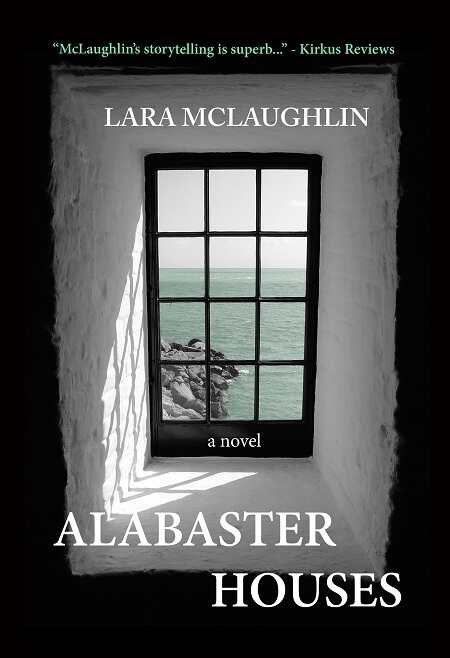Alabaster Houses
- 2011 INDIES Winner
- Gold, Multicultural (Adult Fiction)
- 2011 INDIES Finalist
- Finalist, General (Adult Fiction)
In her first full length novel, Lara McLaughlin weaves together the stories of two very different women as they come to terms with their life choices and experiences while wrestling with guilt, spirituality, grief, and family. With great skill, McLaughlin illustrates how acceptance and understanding can sometimes be the only way forward.
In Jane Pepper and Riva Hakim, McLaughlin has developed two entirely distinct but equally rich voices, personalities, and characters. For all their differences, the two women’s journeys have parallels that unite them, and as Jane edits Riva’s memoirs, parts of which are integrated into the novel, she and the reader clearly see the struggles, joys, and intensely significant experiences that Riva had to fully face and resolve before she succumbs to aggressive cancer. Similarly, Jane is ardently hoping to move to the next stage in her life but is weighed down, not just by the death of her daughter Amy, who was diagnosed with leukemia, but with a tremendous secret about the accident that killed her. The shared link between them is Per, Riva’s now deceased husband and Amy’s biological father.
A practiced short story writer, McLaughlin’s use of style and language clearly distinguish Jane’s narration from Riva’s memoir in ways that give a truly strong voice to both. Jane flits between agonizing flashbacks and the present moment in easy, sometimes blended transitions which nicely reflect her overall mental state. Riva’s deeply personal, often striking experiences start from her earliest childhood and show her maturation. This juxtaposes well against the snapshot-like portrait of Jane.
There are one or two occasions where a non-essential memory emerges, such as a small section devoted to a party held at Jane’s mother’s house. In this case, perhaps McLaughlin intended to compare Jane and her mother’s relationship to the much more developed relationship between Riva and her mother. Only a few facts hint at the truth behind the circumstances of Amy’s death, but this adds a surprising element that fully communicates the gravity of Jane’s guilt.
Thematically, as Riva is a deeply spiritual woman, religion and spirituality are used as a vehicle to communicate philosophic ideas about forgiveness and happiness, and the realization that life can occasionally take people down paths they never imagined. Certain readers may wish that McLaughlin included more reflections on marriage, motherhood, and men.
Although their unique circumstances may not be applicable to the average reader, the universal struggles make Riva and Jane two empathetic and compelling figures.
Reviewed by
Alicia Sondhi
Disclosure: This article is not an endorsement, but a review. The publisher of this book provided free copies of the book and paid a small fee to have their book reviewed by a professional reviewer. Foreword Reviews and Clarion Reviews make no guarantee that the publisher will receive a positive review. Foreword Magazine, Inc. is disclosing this in accordance with the Federal Trade Commission’s 16 CFR, Part 255.

